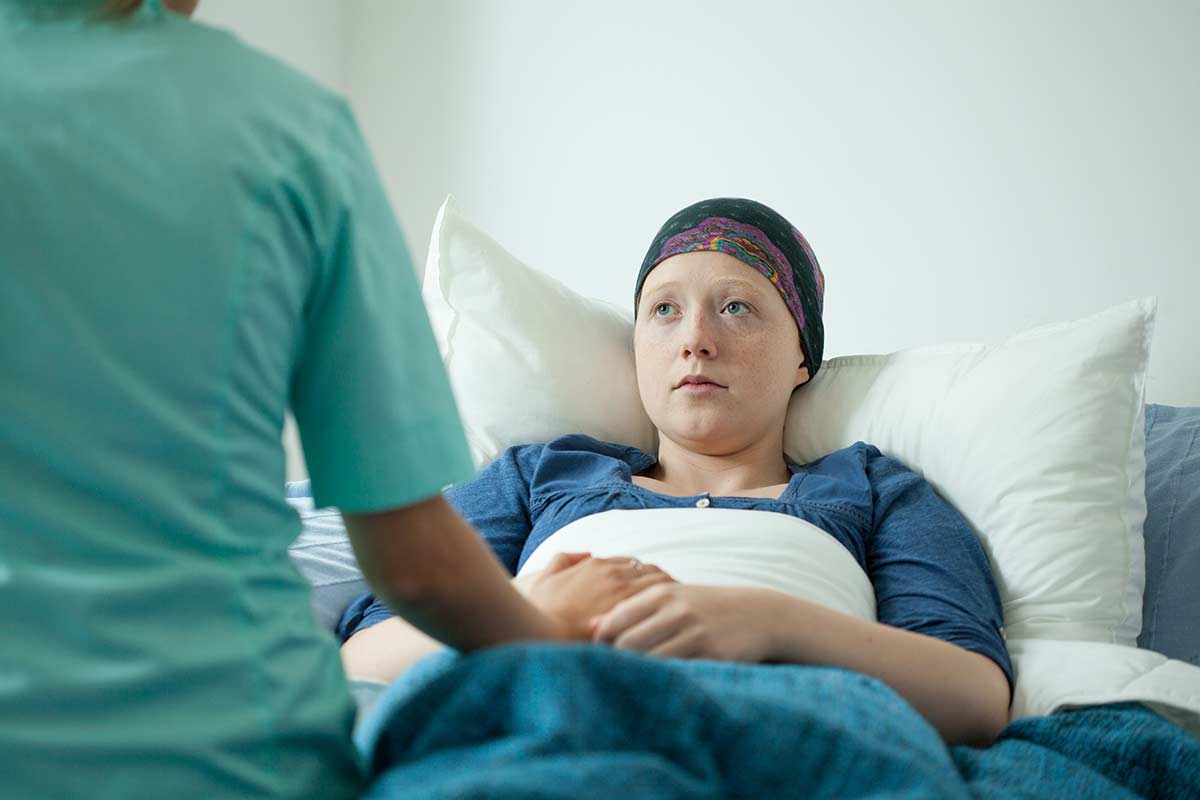What Are The Most Common Cancer Treatments?
People who are diagnosed with cancer may have chemotherapy, radiation therapy, or immunotherapy. All cancer treatments have side effects- short-term side effects and long-term side effects. Treatments vary in many ways but often affect the physical and emotional well-being of patients with cancer.
How Does Chemotherapy Work?
Cancer attacks cells. Chemotherapy is a type of drug introduced into the body in some way to stop cancer cells from growing and spreading. Several different chemotherapy drugs attack fast-growing (rapidly dividing) cells of the body because cancer is usually found in these cells. Chemo is typically administered intravenously, orally, or through a pump.
Chemotherapy can’t differentiate between healthy cells and cancer cells – it attacks all of the fast-growing and replicating cells in the body. Many of these cells are found in the organs and blood. Because of this, chemotherapy can have serious side effects and cause a variety of problems for many people with cancer.
The severity, type, and frequency of side effects can depend on the types of cancer, duration and strength of treatments, and the specific chemotherapy drugs.
What Are The Side Effects of Chemo?
The most common side effects that chemotherapy may cause include:
- Hair loss
- Skin redness
- Skin dryness
- Acne
- Diarrhea
- Stroke
- Constipation
- Mouth sores
- Dry Mouth
- Nausea, vomiting
- Loss of Appetite
- Fatigue
- Short term memory loss
- Bone marrow suppression
- Increased risk of infections and bleeding
- Muscle weakness
- Incontinence
- Sun sensitivity
- Infection
- Darkening of the skin
- Brittle nails
- Pain, tingling, numbness
- Neuropathy
- Abdominal fluid
- Organ failure
- Fertility problems
These just some of the most common side effects of chemotherapy. Some people with cancer will only experience mild side effects, while others may have to cope with the entire list and more. Some medications and drugs can help with some side effects of treatment – talk to your doctor or health care team to find out what might help you feel better.
How Does Radiation Work to Kill Cancer?
Radiation therapy is one method to kill cancer. Radiation can be delivered externally or internally. It comes from a machine that produces high-energy rays and which are aimed at the area affected by cancer. It can also be administered in a capsule and implanted. Radiation can also be used to shrink tumors.
Like chemo, radiation affects all fast-growing cells in the body. Radiation can be administered alone or as part of a treatment plan that also includes chemotherapy. They can be given simultaneously or at different times as part of a cycle.
The Most Common Side Effects of Radiation Therapy
The side effects related to radiation might include:
- Skin redness and scarring at the site of the radiation
- Fatigue
- Temporary hair loss or thinning
- Skin irritation and itching
- Pain
- Numbness
- Digestive problems
- Loss of appetite
- Bladder irritation
- Diarrhea, nausea
- Coughing and shortness of breath
- Changes in the bone marrow
- Increased risk for infection
- Anemia
How Does Immunotherapy Fight Cancer?
Immunotherapy is another treatment option for some patients with cancer. Immunotherapy is different from chemotherapy or radiation, which works outside the immune system to stop and kill cancer. The goal of immunotherapy is to trigger the patient’s own immune system into attacking and destroying cancer.
Immunotherapy Can Cause Different Side Effects Than Radiation and Chemo
Side effects of immunotherapy can include symptoms like:
- Allergic reactions like hives or anaphylaxis
- Joint pain and swelling
- Fever, chills, and tiredness
- Rigors
- Nausea, vomiting, diarrhea
- Diarrhea, constipation, indigestion
- Dizziness
- Fatigue or sleepiness
- Sore throat and earache
The Side Effects Of Cancer Can Be Hard To Control
Side effects from cancer treatments may be hard to avoid completely, but your doctor should have some resources that can make your life easier. They may vary based on the type of cancer you have, how many treatments you are supposed to have, whether you need surgery, how aggressive your treatment plan is, and more.
The most important part of the process for you should be asking questions and making sure you learn about any complications and side effects your treatment may cause.
Will you stop eating? Will you need extra support at home or work? Will your life be put on hold? Talk to your health care team and seek support from loved ones, friends, and support groups. This way, even though they vary from person to person, you can be somewhat prepared for the side effects of cancer treatments.
Send Helpful Cancer Gift Baskets
If someone you love has cancer, send them a helpful cancer gift basket from Rock The Treatment. Chemotherapy and radiation gift baskets are packed with the essentials needed to ease side effects of treatment, as well as enhance physical and mental well-being. See all of our cancer care packages and find the one that best supports their journey.

